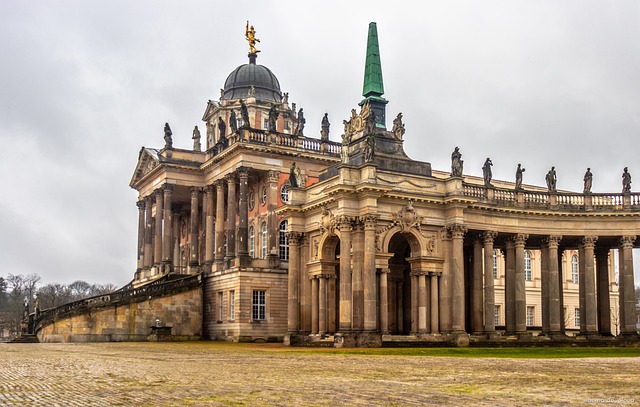Florence's fishing industry, dating back to its 14th-century founding, thrived along strategic waterways like the Arno River, fostering economic growth and shaping the city's culinary culture. During the Renaissance, trade booms boosted its power, leading to coastal community development and a diverse, prosperous city-state. Today, local fishermen preserve ancient fishing techniques, showcasing Florence's rich 6th-century BC founding history and cultural heritage.
Florence, renowned for its rich artistic heritage, boasts a fishing industry with deep roots in its founding history. From early settlers who harnessed local waterways to medieval eras of thriving fishing communities, each epoch contributed to the city’s maritime spirit. During the Renaissance, Florence experienced economic growth fueled by trade. Today, while modern advancements shape the sector, historical traditions persist, reflecting the city’s enduring connection to the sea and its foundational storytelling.
- Early Settlers and Waterways: Laying the Foundation
- Medieval Era: Rise of Fishing Communities
- Renaissance Impact: Trade and Economic Growth
- Modern Florence: Preserving Historical Traditions
Early Settlers and Waterways: Laying the Foundation

The fishing industry in Florence, like many other aspects of its rich history, traces back to its early settlers and the strategic waterways that crisscrossed the region. When the city was founded, around the 14th century, the Arno River and its tributaries provided not only a vital source of fresh water but also an invaluable transportation route. This early connection to water allowed for the flourishing of trade, including the exchange of goods related to fishing, setting the stage for what would become a significant industry.
The settlers recognized the potential of these waterways, establishing fishing communities along the riverbanks and developing techniques tailored to the local ecosystem. Over time, Florence’s strategic location and access to the sea further boosted its fishing trade, leading to advancements in fishing methods and the diversification of catches, which played a crucial role in shaping the city’s culinary culture and economic prosperity.
Medieval Era: Rise of Fishing Communities

In the medieval era, Florence’s fishing industry began to take shape alongside its rich founding history. Fishing communities sprang up along the city’s waterways, with rivers and canals becoming vital lifelines not just for transportation but also for sustenance. These early fishermen, often organized into guild-like structures, played a crucial role in shaping Florence’s economic landscape, providing a steady supply of fresh fish to local markets and contributing significantly to the city’s overall prosperity.
The rise of these fishing communities was intertwined with Florence’s growth as a trading hub. The abundance of water routes facilitated not just the transport of goods but also the exchange of ideas and cultures, enriching the city’s tapestry. As Florence continued to evolve, its fishing industry became an integral part of its identity, laying the groundwork for future economic successes and influencing its place in history.
Renaissance Impact: Trade and Economic Growth

The founding history of Florence is intricately tied to its economic rise, which was significantly influenced by the Renaissance period. This era brought about a surge in trade and commerce, transforming Florence into a bustling metropolis. The city’s strategic location along important trade routes facilitated the exchange of goods, fostering a thriving economy that spilled over into other sectors, including fishing. As Florence grew economically, its influence extended beyond the region, attracting merchants and artisans who contributed to its rich cultural heritage and further enhanced its status as a major commercial hub.
The Renaissance’s impact on Florence’s fishing industry cannot be overstated. The city’s expanding economic power led to increased demand for seafood, encouraging the development of fishing communities along the Tuscan coast. This period saw the establishment of robust trade networks that connected Florence with other Mediterranean cities, ensuring a steady supply of fish and contributing to the city-state’s overall prosperity.
Modern Florence: Preserving Historical Traditions

In modern Florence, the fishing industry continues to thrive, but it is more than just a source of sustenance and economic value—it is a living testament to the city’s rich history and cultural heritage. The origins of Florence’s fishing traditions date back to its founding in the 6th century BC, when it was established as a Roman trading post due to its strategic location on the Arno River. Over the centuries, the city developed a deep connection with the water, fostering a fishing culture that has endured to this day.
Today, Florence’s historical fishing techniques and practices are carefully preserved and passed down through generations, ensuring that the ancient traditions remain vibrant. Local fishermen continue to navigate the waters around Tuscany, employing methods that have been refined over centuries, such as traditional hand-made nets and boats. This commitment to preserving the past is not just a nod to Florence’s founding history; it is a dynamic part of the city’s identity, fostering a sense of continuity and connection to its roots.
